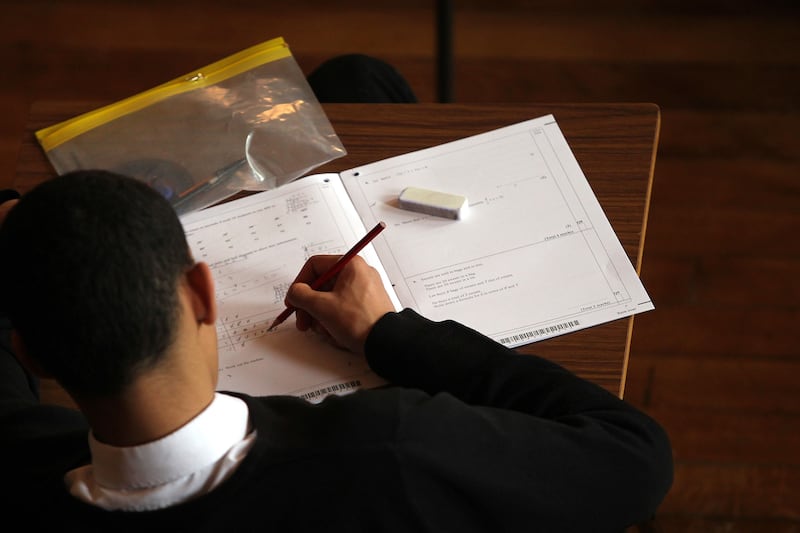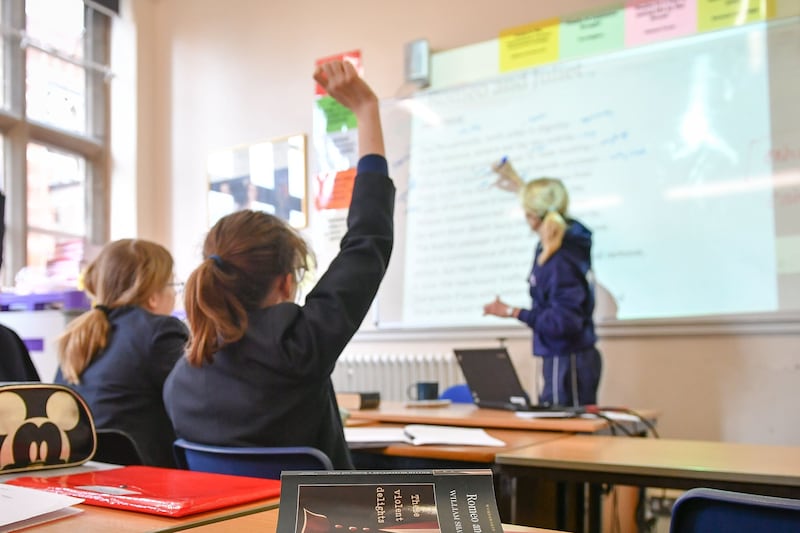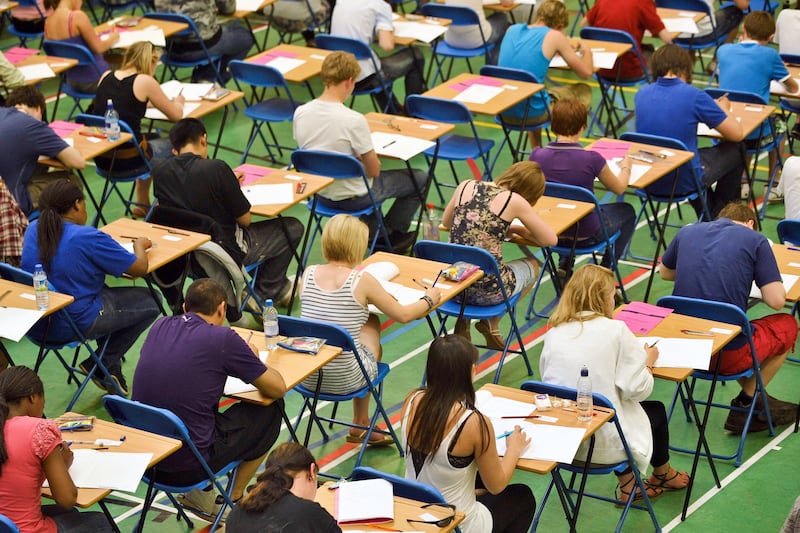More A-level and GCSE exams than ever are being sent away for re-marking - but only a small proportion are changed.
The number of enquiries about GCSEs offered by the north's CCEA board increased significantly between 2011 and 2015.
There has also been a large increase in queries about A-level results.
Teachers say they fear that mistakes in exam marking could be costing students university places.
The Ulster Teachers' Union (UTU) said it was concerned about the rising number being re-graded.
If a school or college is concerned about the accuracy of a candidate's result, it can ask the exam board to investigate the marking. This is known as an "enquiry about result".
There were 4,950 `non-priority' enquiries about A-levels offered by CCEA in 2015, a rise from 3,750 the previous year and 2,950 in 2013.
A total of 700 enquiries resulted in a change to an overall grade - or less than one per cent of all entries. In 2014, 500 grades were changed.
There were a further 1,450 `priority' cases - a faster service for A-level students whose university place is dependent on the outcome. Of these, 150 were changed in 2015.
At GCSE in summer 2015, there were 7,050 enquiries made, up from 6,100 and 5,900 the previous two years. In 2011, there were 4,850 enquiries.
A total of 1,000 of the 7,050 resulted in a change to an overall grade - or 0.69 per cent of total certifications.
UTU general secretary Avril Hall Callaghan said the union was concerned because exam results are of critical importance to young people.
Overall statistics for Britain and Northern Ireland revealed there were 506,750 challenges about GCSE and A-level results in the summer, up 22 per cent on last year. A record 90,000 were changed.
"We are also concerned that the expense involved in paying for a remark could disadvantage less well-off students with some exam boards charging up to £50," Ms Hall Callaghan said.
"For families on lower incomes, a fee like this can make a hefty dent in the budget and for students whose parents do not have that sort of disposable income, the result is that they may be denied access to justice in the education system in the form of fair reward for their efforts.
"With constraints on re-sits and the move by some exam boards to linear qualifications which rely on end-of-course exams this means getting good results first time has become increasingly important."








